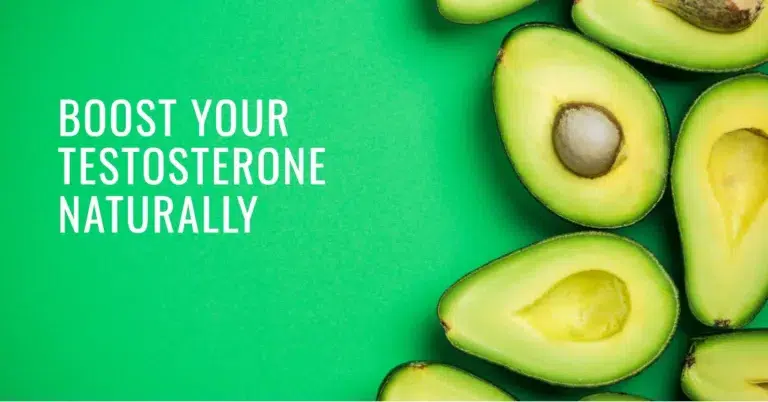8 Proven Ways To Increase Testosterone Levels Naturally
Testosterone is one of the crucial hormones in the male body. Although it’s present in females, too, it’s widely associated with males. It controls various functions in the male body and is essential for a healthy life.
However, with time, testosterone levels decrease. Yes, you read it right! After age 30, testosterone levels in men decrease by 1%-2% each successive year; therefore, it’s important to maintain testosterone levels.
Well, don’t worry because, in this article, I will help you increase your testosterone levels naturally, thus reversing the process. Below, I have mentioned eight practical ways to help you in this process, so make sure to read the article until the end.
Table of Contents
What Is Testosterone?
Like other hormones, testosterone is also the name of the hormone that is associated with a sexual drive in the male body. Its produced by testicles and plays a crucial role in overall physical and mental health.
Moreover, it is responsible for many functions in the male body. It played a crucial part in producing sperm and red blood cells.
Additionally, it gives men masculine characteristics like a deeper voice, greater muscle mass, and increased hair growth.
What Are The Symptoms Of Low Testosterone Levels?
When it comes to low levels of testosterone, there are some symptoms that start to appear in men. These symptoms include as follows:
- Increased in weight
- Loss of body hair
- Low sex drive
- Thinner bones
- Fatigue
- Erectile dysfunction
- Lower concentration
- Moodiness
- Low confidence
How To Increase Testosterone Levels Naturally? [8 Proven Tips]

So if you are experiencing any of the symptoms mentioned above, it’s the right time to pay attention to your testosterone levels and try to elevate them again. In this section, I will show you some easy methods to achieve this, so without further ado, let’s start our journey.
#1: Eat A Diet Rich In Protein
The easiest and most effective way to increase your testosterone levels is by adding protein to your daily diet. Protein is essential for building and repairing tissues in the body and can increase testosterone levels in several ways.
First of all, when you consume protein, your body breaks it down into amino acids, which are then used to build new proteins. One of the key amino acids involved in protein synthesis is called leucine. Leucine has been shown to stimulate muscle protein synthesis and increase testosterone levels.
Additionally, protein-rich diets can help regulate insulin levels, indirectly impacting testosterone levels. Insulin is a hormone that regulates blood sugar levels in the body. When insulin levels are high, testosterone levels tend to be low. By regulating insulin levels, a protein-rich diet can help increase testosterone levels.
These foods are rich in protein: beef, chicken, turkey, fish, crab, lobster, goose, and bush birds.
#2: Do Exercise
Exercise not only makes you active and fit but also helps in boosting testosterone levels. According to research, resistance training like weightlifting has been shown to increase testosterone levels in the short term.
Furthermore, exercising helps you lose weight which also increases testosterone levels. This is also supported by one study in the journal Clinical Endocrinology, which reported that obese males between the ages of 14-20 have up to 50% fewer testosterone levels than men who are not obese.
Lastly, it’s important to note that all types of exercises boost testosterone levels to some extent, but weightlifting is the best exercise to increase testosterone levels both in the short-term and long term.
#3: Take Less Stress
You might be familiar with the effects of a high-stress level on the human body, but do you know it also affects your testosterone levels?
Stress increases the hormone production of Cortisol, which is responsible for managing processes like immune response and metabolism. The rise in Cortisol decreases testosterone levels as both hormones work in a seesaw manner; as one goes up, the other goes down. That’s why limiting your stress is important, as it will make you happier and healthier.
Engaging in physical activities, getting enough sleep, and eating a healthy diet are some of the ways that you can adopt to relieve your stress levels.
#4: Avoid Drinking Alcohol
If you are the one who hangs out a lot with friends and is fond of drinking alcohol at parties and events, then it might be one of the reasons why you are experiencing low levels of testosterone.
There are three glands that are responsible for the production of testosterone, and these are as follows; the hypothalamus, the anterior pituitary gland, and the testes. These glands work in harmony during the production of testosterone. However, consuming high levels of alcohol interfere with all these three glands and thus affects the production.
Therefore, limit your alcohol intake as much as you can if you want to increase your testosterone naturally.
#5: Expose Yourself To Sunlight
Sunlight is one of the primary sources of vitamin D, which plays a significant part in many aspects of health. Likewise, the deficiency of this vitamin can also cause low testosterone levels. Therefore, it’s recommended to expose yourself to natural sunlight.
In general, you should get 30 minutes of sunlight each day to fulfill your vitamin D requirement. So, the next time you have the opportunity to spend time in the sun, do it without any second thought.
#6: Sleep at least 7 Hours
Are you one of those who experience a lack of sleep due to busy schedules or extended work hours? If yes, then you should pay special attention to this point. During sleep, our body starts producing testosterone, which reaches its peak when we are in the first phase of sleep, also called the Rapid-Eye movement (REM) phase.
However, taking less sleep can adversely affect testosterone production. It is reported by research that sleeping 5 hours a night for eight consecutive days can reduce testosterone levels by 10%-15% in healthy men. Therefore, doctors recommend sleeping at least 7 hours a night if you want to have a healthy life.
#7: Avoid Using Plastic Containers
You will be surprised that plastic containers can also affect your testosterone levels. Plastic packaging emits a chemical called Bisphenol-A (BPA), and great exposure to such a chemical can decrease your testosterone level. That’s why you should avoid using plastic containers and start replacing them with glass or poultry containers for food storage.
#8: Eat More Lemon
Last but not least, consuming lemons might be an unexpected solution to increasing testosterone levels. This is because lemons contain high amounts of vitamin C, which acts as an antioxidant and can lower cortisol levels, a hormone that inhibits testosterone production.
In addition, the flavonoids found in lemons can increase testosterone levels by inhibiting the aromatase enzyme, which converts testosterone into estrogen. Therefore, Including lemons in your diet as it not only helps in boosting testosterone levels but also improves your overall health and well-being.
Conclusion
To sum up, testosterone plays a crucial role in the male body, and that’s why it’s important to balance the levels of this hormone in the body. With age, it starts to drop naturally, but with some precautions and a healthy routine, you can stop the process or at least delay it.
Eating a healthy diet rich in protein and consuming lemons in your diet can be a great solution if you are experiencing low testosterone levels. Furthermore, exercising daily, getting enough sleep, and avoiding high consumption of alcohol can also help you in the process.
So it was all for today; I hope you find the article informative.
FAQ
Can testosterone levels be increased naturally?
Yes, testosterone levels can be increased naturally through various lifestyle changes such as exercise, adequate sleep, stress management, healthy weight maintenance, healthy fat consumption, limited alcohol consumption, and vitamin D intake.
What are the benefits of increased testosterone levels?
Increased testosterone levels can lead to improved muscle mass, bone density, libido, energy levels, and overall health.








